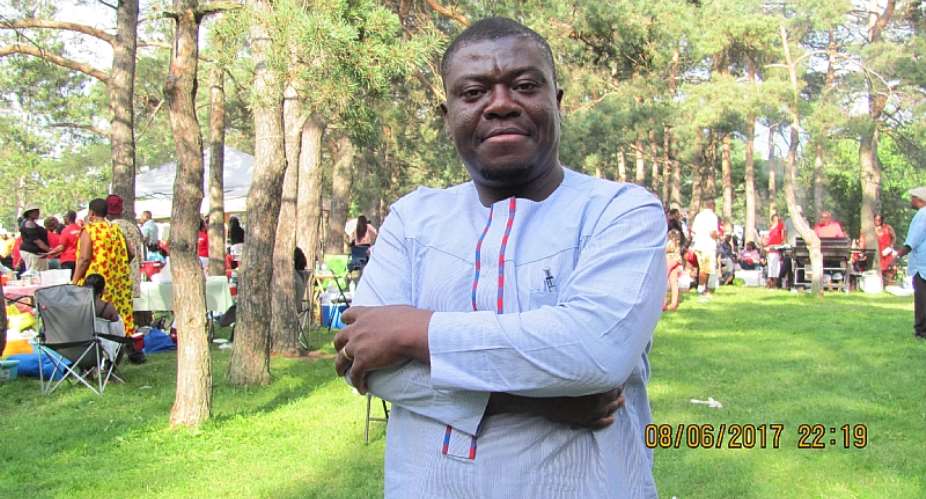The discharge of the eight members of Delta Force [a vigilante group] for lack of evidence calls for a second look at the law which bans the use of television cameras or still cameras in our courts and precincts.
According to the story, the prosecutors lacked evidence of the true identity of the actual persons who stormed the court during proceedings and caused the melee that set the other 16 members free from prosecution.
The discharge which drew public uproar had some people accusing wrong persons for having planned the discharge to safeguard the NPP government against bad publicity.
What was so surprising was that no one was heard talking about the substantive matter which was lack of logistics for the security agencies to conduct proper investigations to unravel the true perpetrators of that crime to face the law.
Four years after the apex court of the land [The Supreme Court], delivered ruling on the infamous 2012 presidential election, the successful live television broadcast of the proceedings should set a platform for a year or so pilot project on allowing television eyes in our courtrooms.
It would be recalled that former Chief Justice [CJ], Her Ladyship Mrs. Theodora Georgina Wood through administration order allowed television cameras to cover the infamous petition from the apex courtroom in 2013.
At that particular period, majority of Ghanaians believed television was the window for them to conduct rigorous search for the truth as they watched the trial on television via live broadcast.
This made majority of the viewers to posit that “reading a trial in the newspapers and seeing it on television sets are two quite different experiences the 2013 election petition thought them and the former chief justice was right in allowing live broadcast from the apex courtroom”.
That recent history indicates that the public is interested in viewing courtroom proceedings if the subject of the trial is wrapped in celebrity, suspected hardened criminals, an unorthodox and independent minded politicians and sensational details on the “pink sheets”.
Even today no one have to tell readers the name of the plaintiffs in the most publicised case in Ghana history, 2012 presidential election petition-Nana Addo Dankwah Akuffo Addo and Dr. Mahamudu Bawumia now the vice president of Ghana.
The cast of characters in 2013 televised trial became as famous as any TV or movie stars including Justice William Atuguba, other panel judges, lead counsel for the plaintiffs Lawyer Philip Addison and lead counsel for the defendant lawyer Tsatsu Tsikata and Dr. Mahamudu Bawumia the witness.
As one poll showed, over 53 % of Ghanaian population could identify lawyer Philip Addison or Dr. Mahamudu Bawumia who earned the nickname “pink sheet” but only 48 % knew who the president was as some people mistook Nana Akuffo Addo for the president at that time.
According to Ghana Television report over the period January-September 2013, television viewing increased by about 8 % partly due to the euphoria that surrounded the elections in 2012 and the supreme court trials.
There is no doubt that the supreme court hearing on the election petition in some areas accounted for a sharp rise of about 32% in viewership for some networks that covered the court proceedings, the report challenged.
Building a case on these it is now certain that suppose television cameras were allowed to cover the trial of the delta force vigilante members in court, chances were that TV Eyes or cameras would have captured those who stormed the courts and caused the melee that freed other members of the group who were facing trial at that moment.
That the police wouldn’t have had any excuse to present to court that they lacked evidence in identifying the true suspects for court to discharge the suspects to create public uproar.
Four years since the most publicised and first live broadcasting case in Ghana is enough for the judicial Service together with the Ghana Journalist Association GJA to have worked harmoniously to lift the ban on television cameras in Ghanaian courtrooms.
But it is not too late for these two professional bodies with the support of the Chief Justice Her Ladyship Mrs. Sophia Akuffo to embark on one year pilot project on allowing TV cameras in our courtrooms.
This would be a great step taken to educate greater number of Ghanaian population who doesn’t understand court proceedings and also satisfy viewers who search for the rigorous truth through trials in court.





 Dumsor: Mathew Opoku Prempeh has been disrespectful, he should be fired – IES
Dumsor: Mathew Opoku Prempeh has been disrespectful, he should be fired – IES
 NPP prioritizing politics over power crisis solution — PR Strategist
NPP prioritizing politics over power crisis solution — PR Strategist
 E/R: Gory accidents kills 3 persons at Aseseaso, several others critically injur...
E/R: Gory accidents kills 3 persons at Aseseaso, several others critically injur...
 Nobody can come up with 'dumsor' timetable except Energy Minister – Osafo-Maafo
Nobody can come up with 'dumsor' timetable except Energy Minister – Osafo-Maafo
 Dumsor: You ‘the men’ find it difficult to draw timetable when ‘incompetent’ NDC...
Dumsor: You ‘the men’ find it difficult to draw timetable when ‘incompetent’ NDC...
 We’re working to restore supply after heavy rains caused outages in parts of Gre...
We’re working to restore supply after heavy rains caused outages in parts of Gre...
 NPP government plans to expand rail network to every region — Peter Amewu
NPP government plans to expand rail network to every region — Peter Amewu
 Dumsor must stop vigil part 2: We’ll choose how we demonstrate and who to partne...
Dumsor must stop vigil part 2: We’ll choose how we demonstrate and who to partne...
 2024 elections: NDC stands on the side of morality, truth; NPP isn't an option —...
2024 elections: NDC stands on the side of morality, truth; NPP isn't an option —...
 Akufo-Addo has moved Ghana from 'Beyond Aid' to ‘Beyond Borrowing’ — Haruna Idri...
Akufo-Addo has moved Ghana from 'Beyond Aid' to ‘Beyond Borrowing’ — Haruna Idri...
